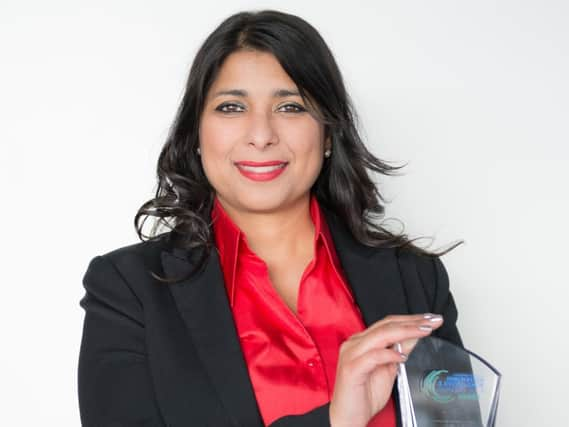How businesses with a healthy gender balance can outperform their rivals - Rashmi Dube


International Women’s Day this year had the theme of ‘I am Generation Equality: Realising Women’s Rights’ as chosen by the UN.
Yet speaking to people within the business community, I have noticed that there has been a passive aggressive approach to this celebrated day where comments have been made along the lines of “well love you got what you want – what’s all the fuss about?” and “why do women need a special day?”
Advertisement
Hide AdAdvertisement
Hide AdIWD is not a new concept contrary to some people’s perception. It originated in 1908 in New York, slowly becoming more global and eventually held as an annual day by 1967, with the United Nations (UN) celebrating the day in 1977. IWD is more than just statistics for business on how to get more women on the board.
It is, in fact, far more reaching, cutting across such issues as education (for instance did you know that two thirds of the 757 million adults who cannot read and write are women?), domestic violence, period poverty and child labour, along with much more.
Given that we live in a community and all aspects of that community impact each another, it would seem to me that IWD and raising an awareness of these issues is critical. Even if it is brought to the corporates’ attention just once a year, there is hope of some change.
The biggest change women (and really all other discriminated groups) are seeking is still diversity, inclusivity and smashing stereotypes.
Advertisement
Hide AdAdvertisement
Hide AdTo my mind, there is still a gap between what the board of a corporation and its leaders think, and what their employees see and say is actually occurring on the shop floor.
The importance of workplace culture is still forgotten and far too often the culture is echoing formed biases and prejudices that are systemic in the wider culture and around our private lives.
I am not here to preach about how great diversity and inclusivity is. Most of the readers already know this.
For instance, research done by Global Diversity Practice last year found that
:
Advertisement
Hide AdAdvertisement
Hide AdBusinesses with a healthy balance of men and women are 21 per cent more likely to outperform their competitors
Businesses with a good mix of ethnic backgrounds are 33 per cent more likely to outperform their competitors
Teams that are gender, age and ethnically diverse make better decisions up to 87 per cent of the time.
Although some inroads have been made, we seem stuck, as though there has been a slowdown in progression.
Advertisement
Hide AdAdvertisement
Hide AdWe still create our own barriers to diversity and inclusion through our own biases and prejudices, whether conscious or not, in the form of stereotypes. Our stereotypes are built over time from the moment we are born.
The use of language is paramount in how we empower one another. One of the ways we can equalise the positions between the genders is by using the same language for both.
By using the word “girl” in any context that does not actually refer to a girl but rather a woman, you are undermining them by taking away power and stating that you are more knowledgeable and experienced.
I have seen this done by both men and women to women, with statements like “oh you girls” for instance. This is also true when we say things like “oh he has manflu”. So we must be careful of the words we use.
Advertisement
Hide AdAdvertisement
Hide AdTrust me when I say I am watching more than my P&Qs – I am watching everyone around and will call it out when I see it. And no, it is not ‘political correctness gone mad’, it is simply a deconstruction of existing stereotypes that will lead to greater diversity and inclusivity.
Rashmi Dube - MD, Legatus Law